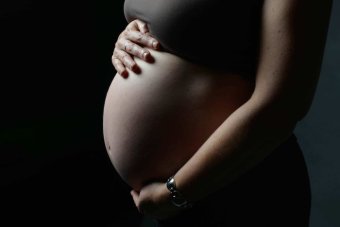
Medical experts argue there is a need for a drastic rethink towards childbirth education in Australia.
Professor Hannah Dahlen, a professor in midwifery at Western Sydney University, said greater pre-birth education could help to cut the rate of medical interventions during labour.
She said she feared too many women were having unnecessary medical interventions because they were either unaware of their options or were scared about the labouring process.
“Fear is at the heart of why many health professionals are intervening when they shouldn’t, and fear is at the heart of why many women are going into birth terrified.”
Professor Dahlen said it was time for maternity services and people working in childbirth to rethink the way they have constructed parent education.
“I think in some ways what we’ve done is create giant orientation programs to hospital policy and procedure and make sure that women and their partners are very compliant to what we want them to take from our services,” she said.
“It’s time for us to rethink that, and also to think about empowering parents much more, getting them motivated, getting them informed about how wondrous and amazing their bodies are and how capable they are of doing this.”
Professor Dahlen and Dr Kate Levette, an Adjunct Fellow at Western Sydney University’s National Institute of Complementary Medicine, have been conducting a small study to look at how effective antenatal education was.
One of their focuses looked at its effectiveness when combined with therapies such as massage, acupressure during labour, yoga, and or breathing techniques.
Study found a halving of epidural rates
While the sample size they used was too small to offer definitive results, they said they were intrigued by the initial findings and want to conduct a similar study on a much larger international scale.
Dr Levette said by using a variety of complementary therapy techniques, which the women chose themselves during their labour, they were able to reduce epidural use.
“And therefore reduce what they call a cascade of interventions — rates of augmentation during labour and, importantly, caesarean sections,” she said.
“And the other thing that we found was that babies were less likely to require resuscitation.”
Professor Dahlen said she was interested to find out if the results were similar for a larger scope of women.
“The fact that we found more than a halving of epidural rates, a dramatic reduction in almost a halving of caesarean section rates, is really quite striking.
“In all my career… I’ve never seen such dramatic results,” she said.
The study was prompted by the Towards Normal Birth Policy directive, released in 2010 by the NSW Government, after it raised concerns about the high level of medical interventions during labour.
The findings have been printed in today’s medical journal BMJ and have been peer-reviewed.
